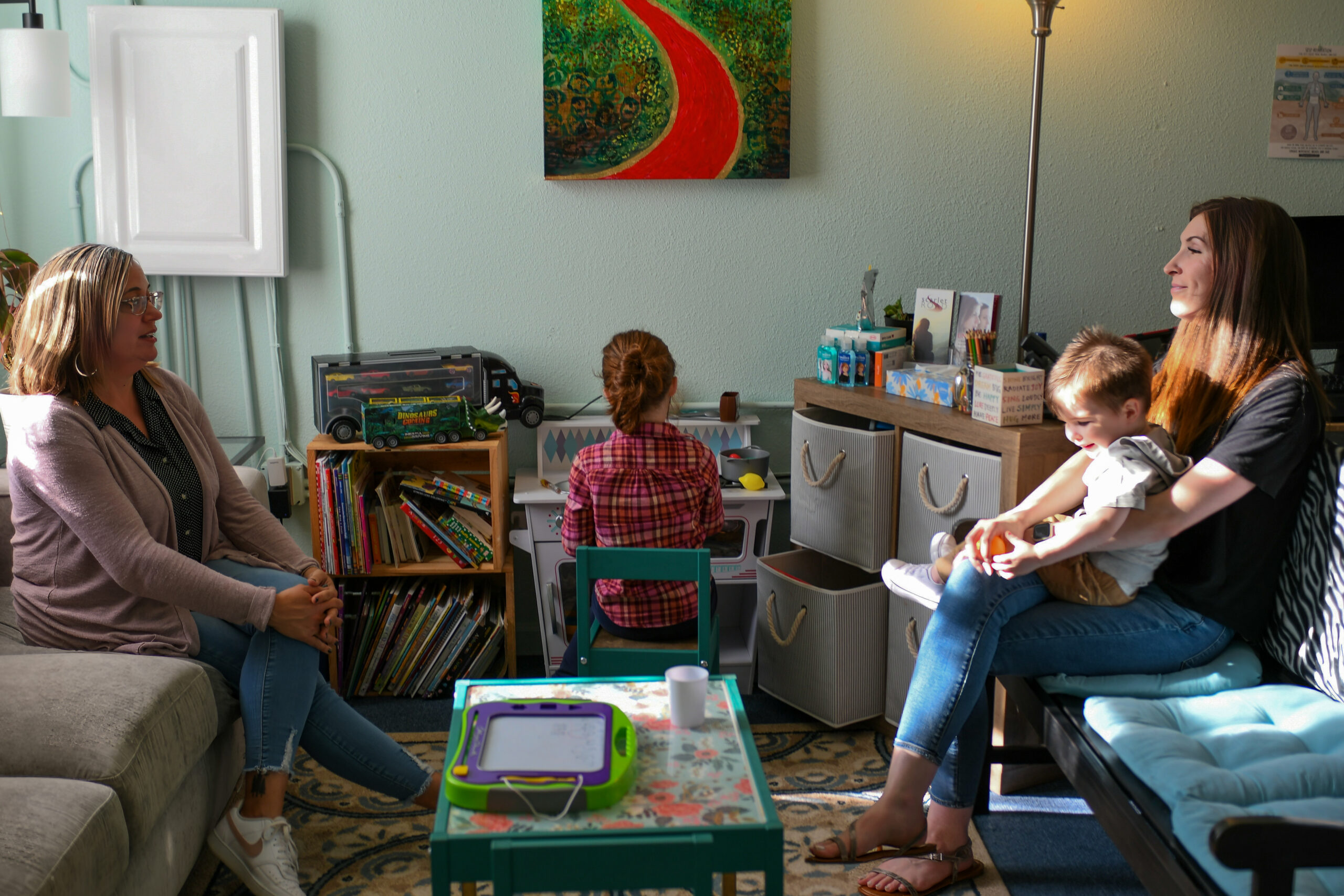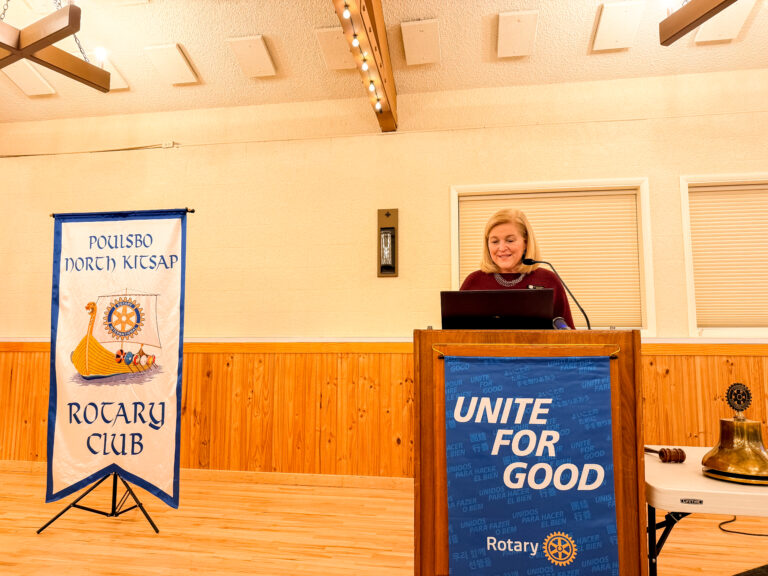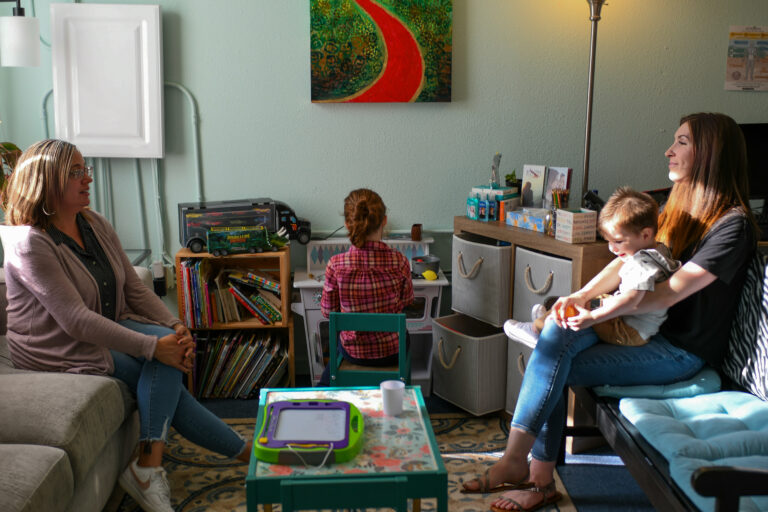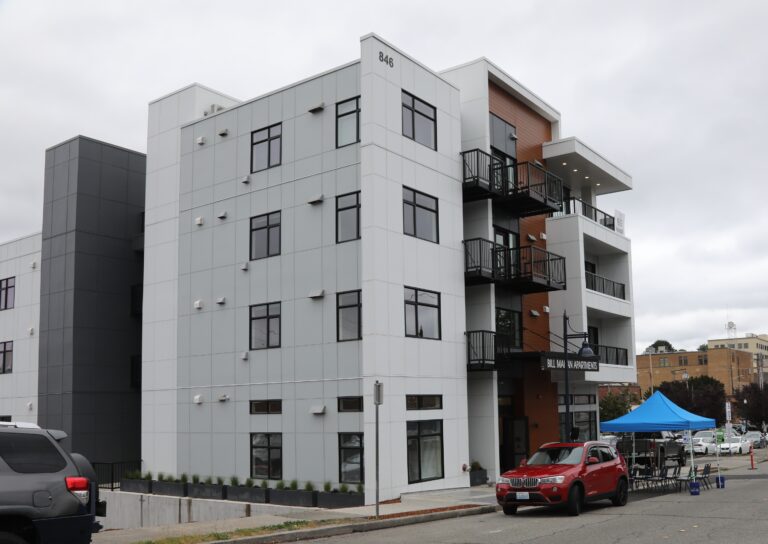Scarlet Road’s Mission to Heal and Empower
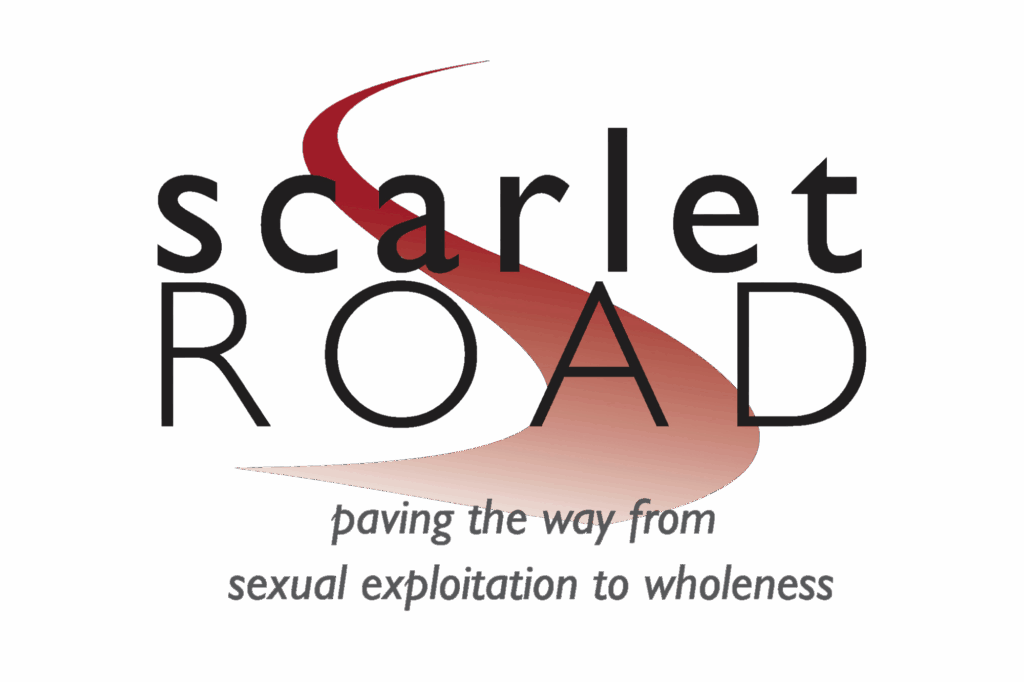
In Kitsap County, sexual exploitation and trafficking are realities that often remain hidden in plain sight. Scarlet Road, a nonprofit serving survivors, has spent nearly two decades shedding light on these issues and offering a lifeline to those navigating trauma. The organization meets people where they are, walking alongside them on a path toward healing, and reframing the conversation around empowerment, agency, and transformation.

Inspiration and the Founding Mission
Scarlet Road’s story begins with recognition of a profound gap in local services. Co-founder and Executive Director Rosie Garbe returned to Kitsap County after years working in social services and international development, particularly with survivors of sexual exploitation. She was struck by how little local understanding existed—and how poorly survivors were being served.
“When I shared my experiences from other parts of the world and the Northwest, there was such a gap in understanding. No one really understood survivors’ journeys or their trauma, and as a result, they weren’t finding success,” Garbe said.
Seeing survivors repeatedly fall through the cracks inspired Garbe and a small group of advocates to act.
“That motivated us to move from just talking about the issue to stepping in and filling a significant gap, because survivors were not being served, and they were returning to abuse even when they wanted to escape,” she said.
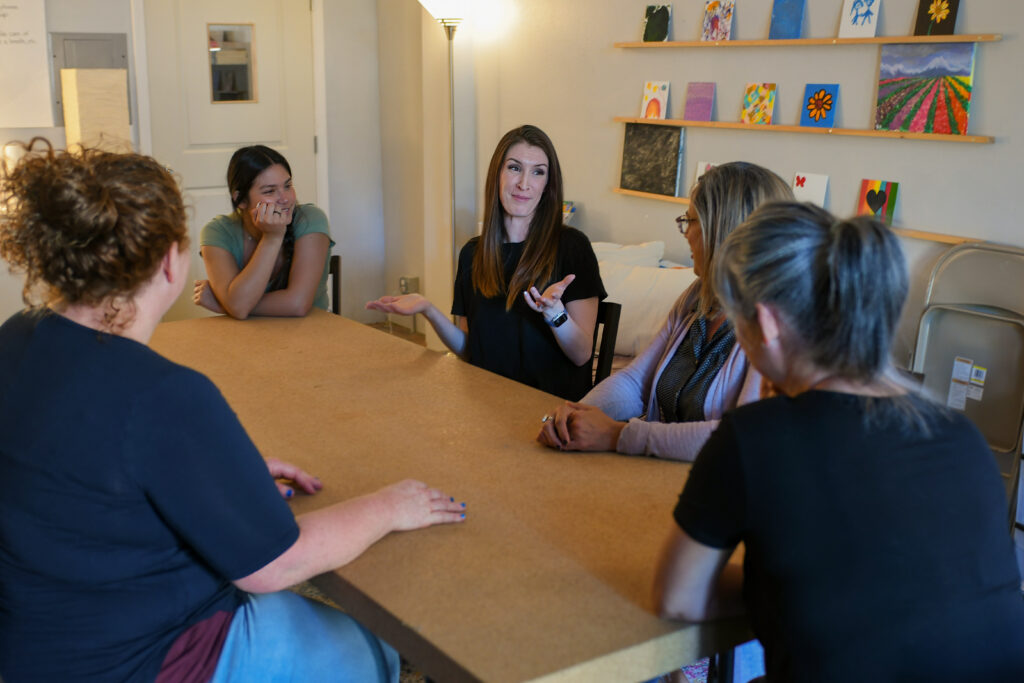
The Meaning Behind the Name
The organization’s name reflects both the realities survivors face and Scarlet Road’s philosophy of accompaniment rather than direction.
“We landed on Scarlet Road for two reasons. ‘Scarlet’ carries weight and connotation—it reflects the difficult reality survivors face. ‘Road’ represents the journey, and we have the privilege of walking alongside someone on their path,” Garbe said.
This name signals the organization’s belief in walking with survivors, not dictating their path.
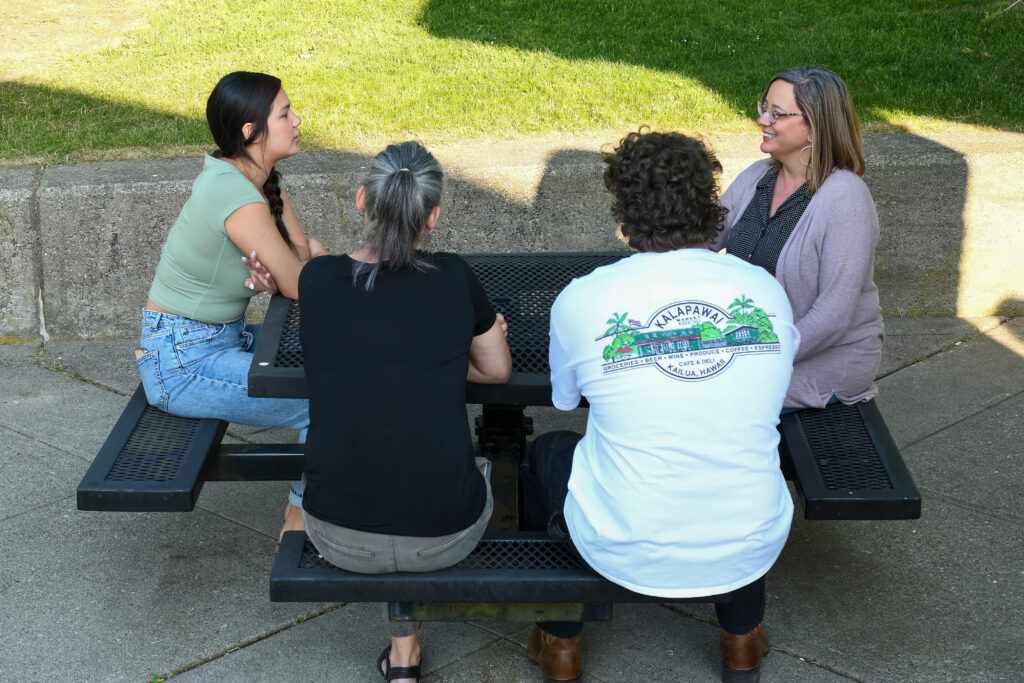
From Rescue to Empowerment
When Scarlet Road began in 2008, language around “rescue” was common in anti-trafficking work. Over the years, the organization has shifted to prioritize empowerment and survivor agency.
“In the beginning, the language focused on rescue. Over time, we’ve moved to empowerment, and that mindfulness has intensified as our services and programming have evolved,” Garbe said.
“We’re not here to dictate; we’re here to listen, to ask, ‘What do you want, and how can we help you get there?’ That collaboration is central to everything we do,” she said.
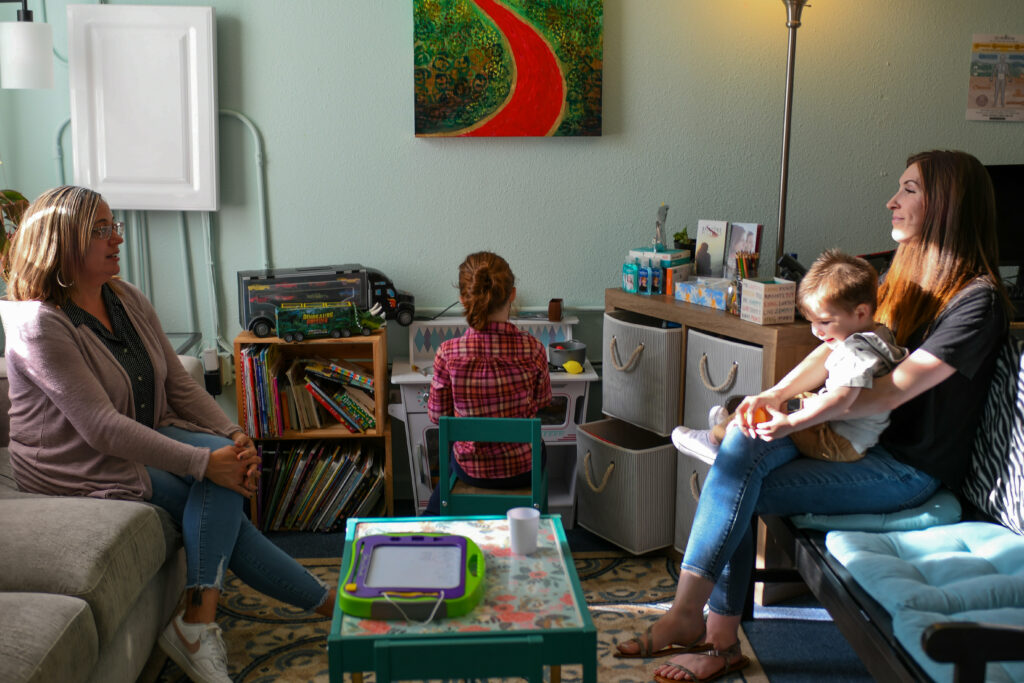
Holistic Support: Seeing the Whole Person
Scarlet Road’s approach reflects the reality that trauma affects every aspect of life—from housing and legal challenges to employment, parenting, and emotional well-being.
“A holistic approach means seeing the big picture. Survivors’ challenges rarely fit neatly into a checklist. Trauma affects every part of life, and our case management is designed to address those interlocking complexities,” Garbe said.
The organization’s solutions often require creativity. Survivors may be connected to trauma-informed therapy, legal or housing assistance, alternative therapeutic programs, or simply an advocate who will be a steady presence.
“We’re dealing with people, and people are complicated. In practice, this means seeing the big picture and finding solutions that often fall outside the box,” she said.
Survivor Intake and Continuum of Care
Initial engagement is intentionally low-barrier and conversational.
“Our intakes are very conversational. Advocates are trained to be accessible and low-barrier. It’s a conversation to understand their experiences and confirm whether they are survivors of exploitation,” Garbe said.
After intake, survivors receive intensive case management through Scarlet Road’s aftercare program, helping them navigate complex systems and processes.
“Our outreach team does the initial connection, and aftercare intensifies services. This is where we address complex needs and help clients navigate systems that might otherwise be overwhelming,” she said.
Overcoming Barriers
Even with skilled advocacy, survivors face significant barriers. Housing is one of the most persistent challenges.
“Housing is a major challenge. There’s a deficit of supportive housing in our community. Many clients also have criminal histories tied to their exploitation, which adds another layer of difficulty,” Garbe said.
Stigma and shame compound these challenges.
“There’s a lot of shame and stigma surrounding this topic, and our case managers are constantly navigating that with clients,” she said.
Kitsap’s small, close-knit community presents additional hurdles.
“If a survivor has experienced abuse from people in the community, the chance of running into them in daily life is high, which can be extremely triggering,” Garbe said.
Transformation and Impact
Scarlet Road measures success not just by avoiding re-exploitation, but through stable housing, meaningful employment, emotional wellness, and community connections.
The success stories are what keep Garbe and others going.
“One woman had been trafficked from Seattle along the I-5 corridor. She found us, we stabilized her housing, and she pursued education. She earned a social services degree and now serves vulnerable populations. She’s thriving,” Garbe said.
Small changes can be just as transformative.
“Transformation can feel small but be life-altering. Changing a mindset can completely change someone’s life trajectory,” she said.
Clients regularly evaluate individualized care plans with their case managers to track progress across key areas.
Community Partnerships
Collaboration is critical to Scarlet Road’s success. Partnerships with housing providers, schools, hospitals, and the judicial system expand the organization’s capacity and reach.
“We’re a small team—about 17 people. Housing collaborations, like with Bremerton Housing Authority and Evergreen Bright Start’s youth program, are essential,” Garbe said.
Education partnerships include a survivor-informed youth curriculum addressing digital exploitation.
“Kids are more vulnerable than ever. Preventing harm before it begins and intervening early is critical,” she said.
Scarlet Road’s work is largely supported by individual donors and local businesses.
“Our backbone has always been individual supporters—monthly donors, local families, small businesses. We also have programs for business involvement, recognizing the unique role locally owned businesses play in community investment,” Garbe said.
This community-driven approach allows flexibility but requires ongoing engagement to sustain services.
Funding and Sustainability
Scarlet Road’s work is largely supported by individual donors and local businesses.
“Our backbone has always been individual supporters—monthly donors, local families, small businesses. We also have programs for business involvement, recognizing the unique role locally owned businesses play in community investment,” Garbe said.
This community-driven approach allows flexibility but requires ongoing engagement to sustain services.
Caring for Caregivers
The emotional intensity of this work is immense, and Scarlet Road prioritizes staff wellness.
“We’ve intentionally created a culture where self-care is a high priority. Supervisors taking care of employees is also a priority. If you’re not well, you can’t serve others effectively. Our caseloads are intentionally low compared with other providers,” Garbe said.
Looking Ahead
Scarlet Road’s strategic goals include expanding physical space, increasing visibility, and becoming a household name so that anyone in crisis knows where to turn.
“One of our big goals is to figure out what the next step is for better space for our population. We want to be the loudest voice in the community, so people know that help and support exist,” Garbe said.
Awareness remains a major challenge—and opportunity.
“The biggest question I still get is, ‘Does this actually happen here?’ The answer is yes. It affects everyone in our community and is far more prevalent than people recognize,” she said.
A Call to Action
Scarlet Road’s future depends on the continued partnership of residents, businesses, and community leaders. Whether as volunteers, donors, or informed citizens willing to challenge stigma, everyone can help ensure survivors have not just a way out, but a way forward.
For more information, visit scarletroad.org.
Keep in touch with our news & offers
Subscribe to Our Newsletter
Thank you for subscribing to the newsletter.
Oops. Something went wrong. Please try again later.

